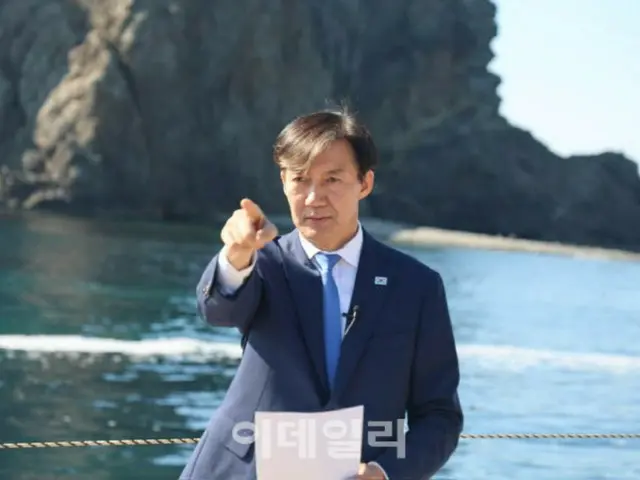On the 30th of last month, lawmakers from the country's largest opposition party, the Democratic Party of Korea, and their associates also arrived in the country. The aim of both visits was to criticize the Yoon Seok-yeol administration's policy toward Japan.
Following the major defeat of the ruling People Power Party, which supports the Yoon administration, in the election, the opposition parties have stepped up their criticism of the Yoon administration's diplomatic policy, which places importance on relations with Japan, and are stepping up their offensive regarding diplomacy with Japan.
Two years have passed since Yoon took office as president on the 10th of this month. Until now, Yoon has placed emphasis on strengthening cooperation between Japan, the United States and South Korea, and has also worked hard to improve Japan-South Korea relations.
The Korean government announced a solution to the former forced labor lawsuit issue. This led to a dramatic improvement in relations between the two countries, and currently, exchanges between the two countries are becoming more active not only in the political world but also in the business world and between the private sector.
Meanwhile, opposition parties including the Democratic Party of Korea have consistently criticized the Yoon administration's Japan policy as "humiliating diplomacy."
On the 10th of last month, a general election was held in South Korea. It was positioned as a mid-term evaluation of the Yoon administration.
The seats were contested through single-seat constituencies (254 seats) and proportional representation (46 seats). Before the election, the opposition Democratic Party of Korea had 156 seats (including affiliated parties), the ruling People's Power Party had 114 seats (including affiliated parties), and the opposition parties had 114 seats in the Diet.
The Democratic Party of Korea won 175 seats, including its proportional representation party, and the Democratic Party of Korea won 175 seats.
On the other hand, the ruling People Power Party and its affiliated parties, which support the Yoon administration, suffered a major defeat, winning only 108 seats. Although policy toward Japan was not an issue in the general election, the landslide victory of the opposition parties has led to a change in the Yoon administration's foreign policy.
However, on the 9th of this month, Yoon held a press conference just before the second anniversary of his inauguration, and mentioned the relationship with Japan.
"There certainly are differences in our positions," he said, but added, "We must think about what we should do for the future and future generations of our two countries. For our future, specifically, we need to think about how to respond to North Korea's nuclear program and economic cooperation between the two countries.
"We must cooperate for our strength and for our leadership in the Indo-Pacific region and the international community," he said, indicating that there will be no change to his stance of placing importance on relations with Japan.
However, since the general election, the opposition parties have stepped up their protests against the Yoon administration's Japan policy.
The head of the Democratic Party of Japan also mentioned Yoon's stance on Japan. Citing the ocean release of treated water from the Fukushima Daiichi Nuclear Power Plant and the Takeshima issue, he said, "I will make active efforts at the government level to ensure that the pride of the people is not hurt."
On the 30th of last month, 17 members of the Gyeonggi Province branch of the party, including three members of the National Assembly, who are part of the "Committee to Counter Humiliation Diplomatic Relations with Japan," landed on Takeshima in Shimane Prefecture.
After asserting their sovereignty, the members criticized the Yoon administration's diplomacy toward Japan, saying, "Japan's sovereignty claims cannot be dealt with through humiliating diplomacy and unilateral pro-Japanese actions."
On the 13th of this month, Cho Kuk, the leader of the Fatherland Reform Party, which won 12 seats in the general election and became the second largest opposition party, landed on Takeshima. After landing, Cho read out:
In a statement released on Tuesday, the group demanded an apology from Japan for "denying the liberation of the Republic of Korea." It also criticized the Yoon administration as "the worst pro-Japanese government in history, a traitorous government."
Following Cho's arrival, Hiroyuki Namazu, director-general of the Asian and Oceanian Affairs Bureau of the Ministry of Foreign Affairs, addressed Kim Jang-hyun, deputy chief of mission at the Korean Embassy in Japan, on the 13th.
"Despite our prior requests to cancel, the landing was carried out anyway. Takeshima is Japan's inherent territory, and the landing is completely unacceptable and extremely regrettable," they protested.
Takeshima has long been under the effective control of South Korea. Chief Cabinet Secretary Yoshimasa Hayashi said at a press conference on the 13th, "Takeshima is clearly an inherent part of Japan's territory, both in light of historical facts and under international law.
He added, "We will respond resolutely with our determination to resolutely defend our territory, territorial waters, and airspace."
Meanwhile, South Korean Foreign Ministry Deputy Spokesperson Lee Ju-il said on the 14th
At a regular press conference, he said, "We will continue to firmly respond to Japan's unjust claims regarding Liancourt Rocks," dismissing the Japanese government's protest against Cho's landing on Takeshima.
Despite this, the opposition party is in agreement with the South Korean government and ruling party in asserting sovereignty over the islands.
do.
2024/05/15 10:57 KST
Copyrights(C)wowkorea.jp 2

